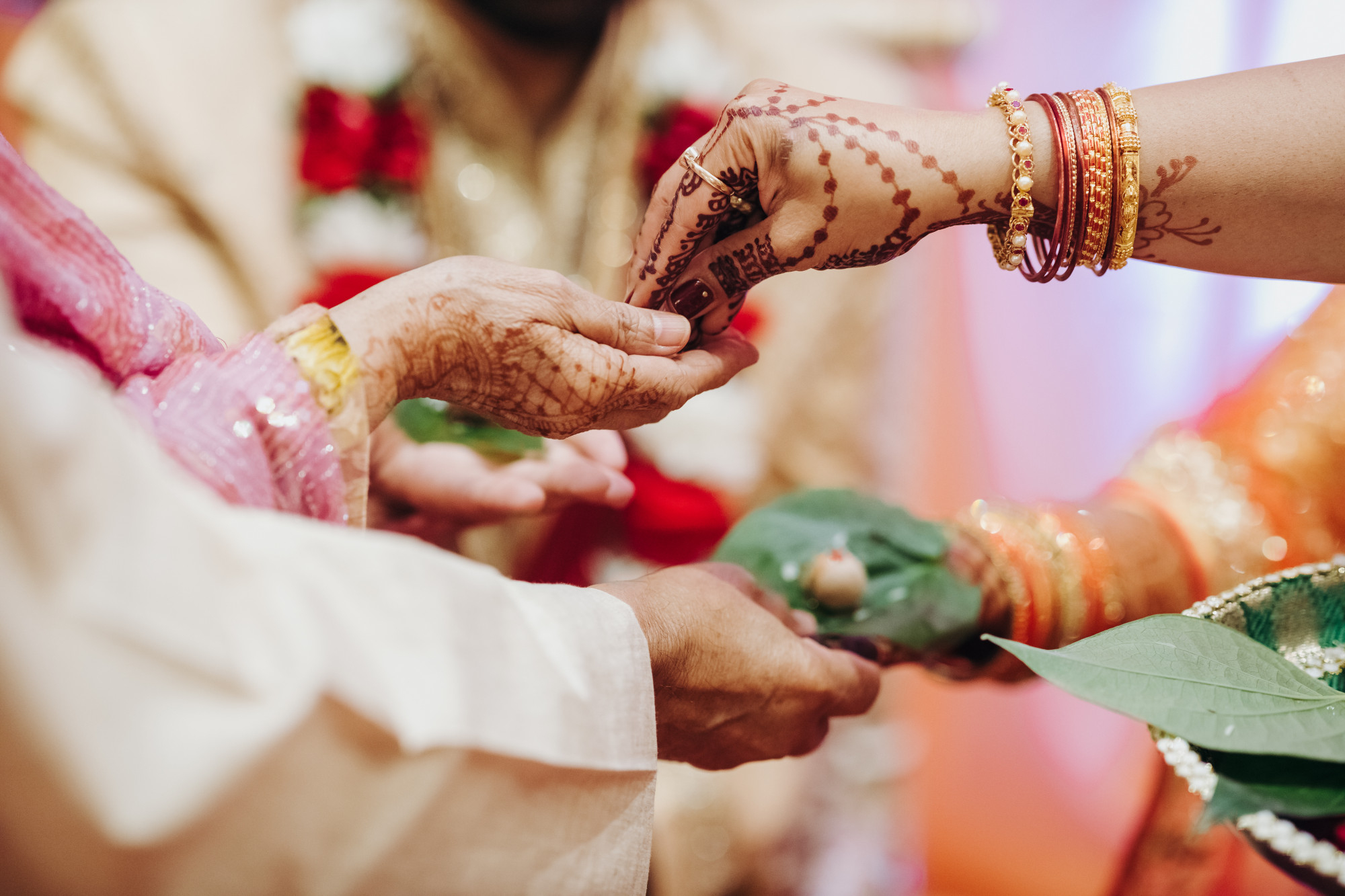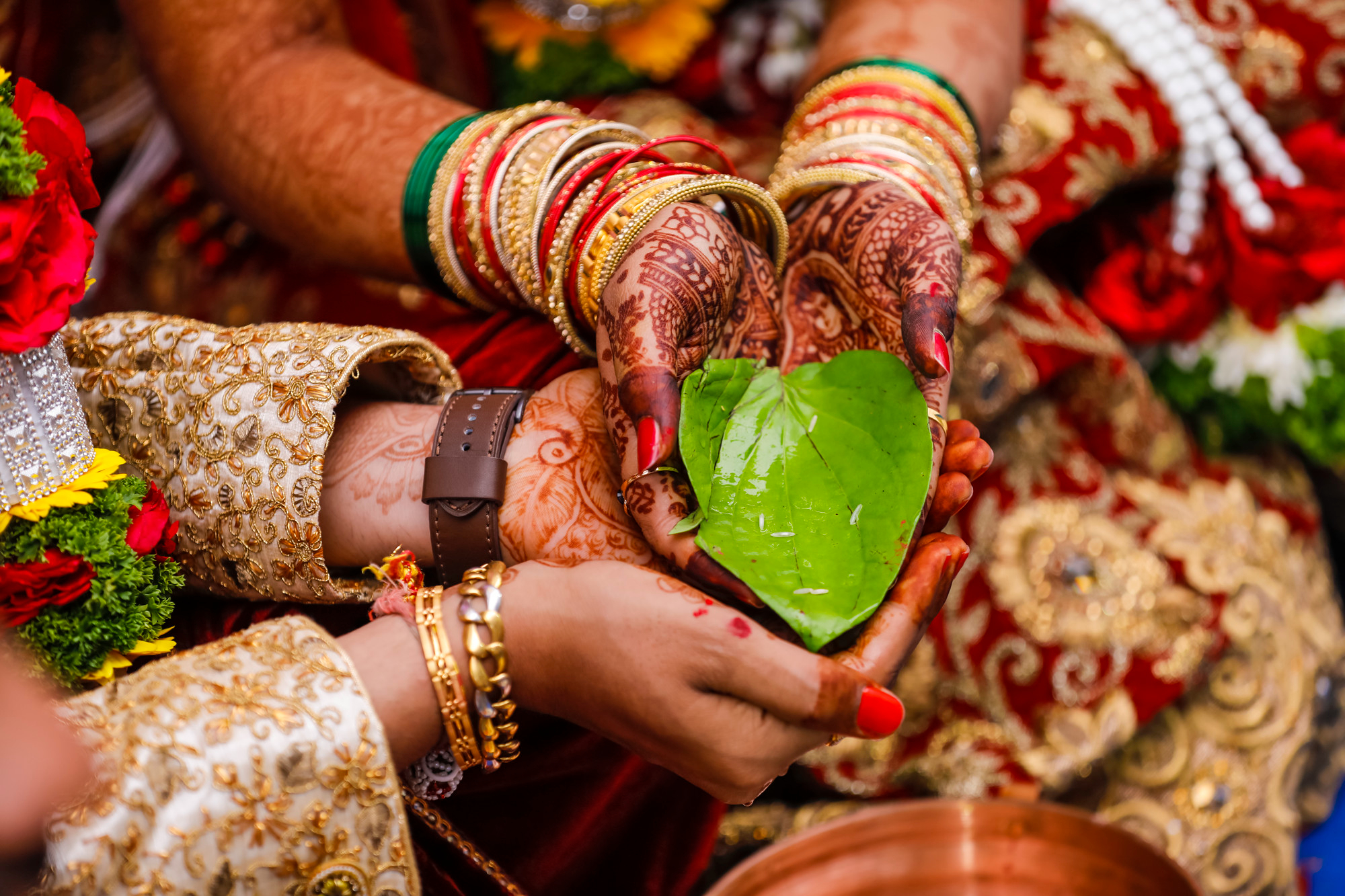Telugu weddings are traditional Hindu weddings that are conducted in the Telugu-speaking regions of India, primarily in Andhra Pradesh and Telangana. They are known for their rich cultural rituals, vibrant colors, and elaborate ceremonies.
Here are some key aspects of Telugu weddings:
-
Pre-wedding rituals:
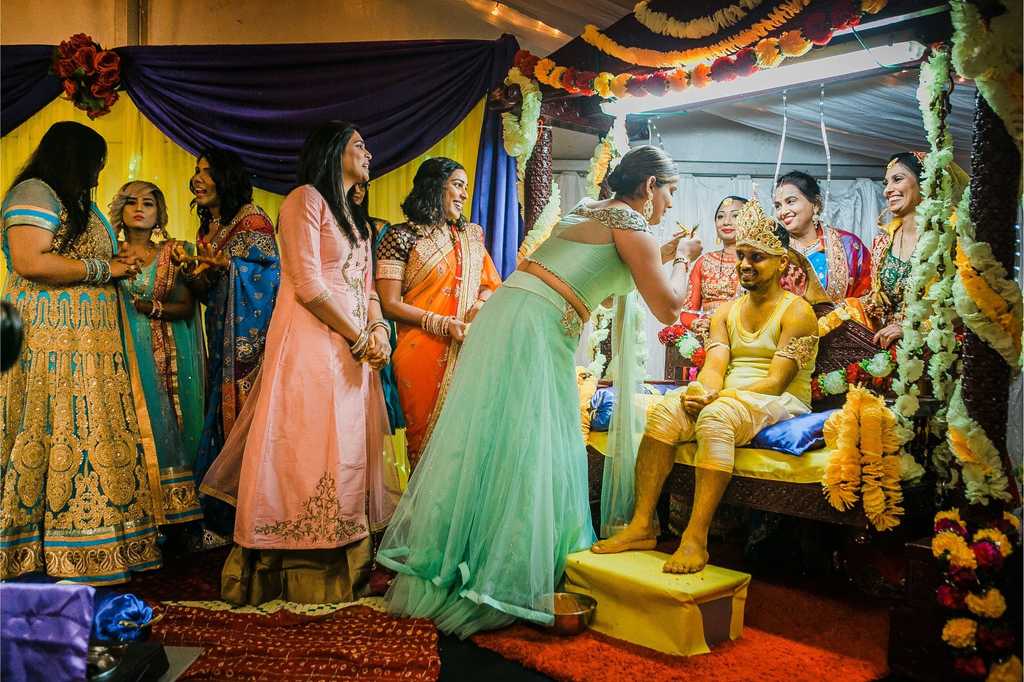
Pre-wedding Rituals Telugu weddings typically begin with the Nischitartham or engagement ceremony, where the families exchange gifts and finalize the wedding date. This is followed by the Pendlikoothuru ceremony, where the bride and groom are separately adorned with turmeric paste and oil to cleanse and beautify them.
-
Kasi Yatra:
In this unique ritual, the groom pretends to leave for Kasi (Varanasi) to lead a life of asceticism. The bride’s father then convinces him to return and marry his daughter, symbolizing the groom’s commitment to married life.
-
Muhurtham:
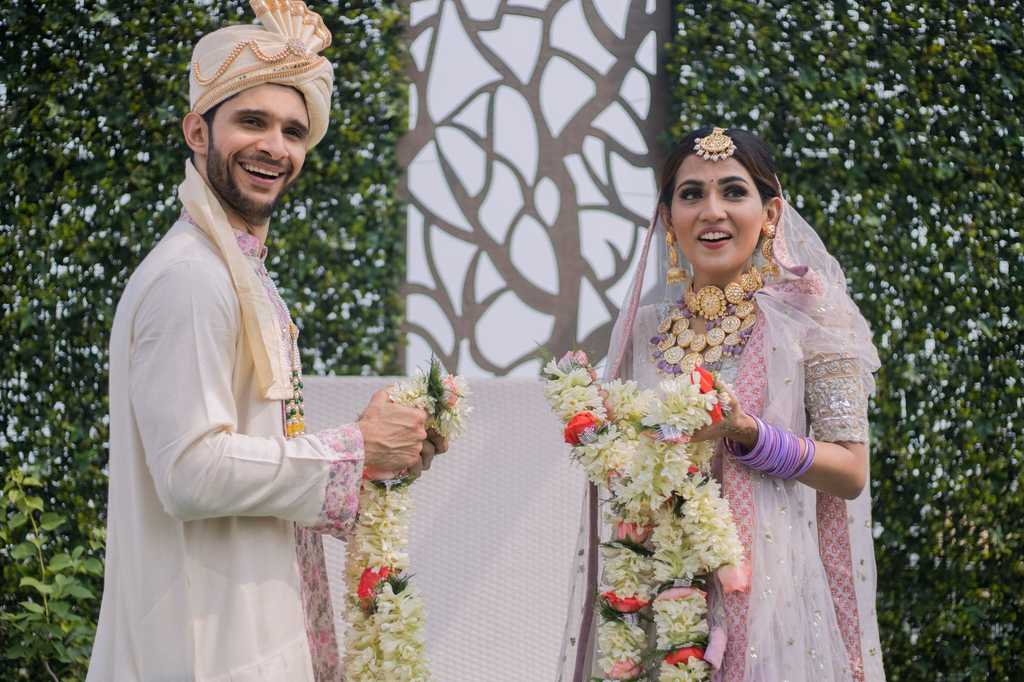
Muhurtham The wedding ceremony takes place at an auspicious time determined by the family priest. The wedding venue is beautifully decorated, and the couple exchanges garlands in the presence of the holy fire (homam).
-
Jeelakarra Bellam:
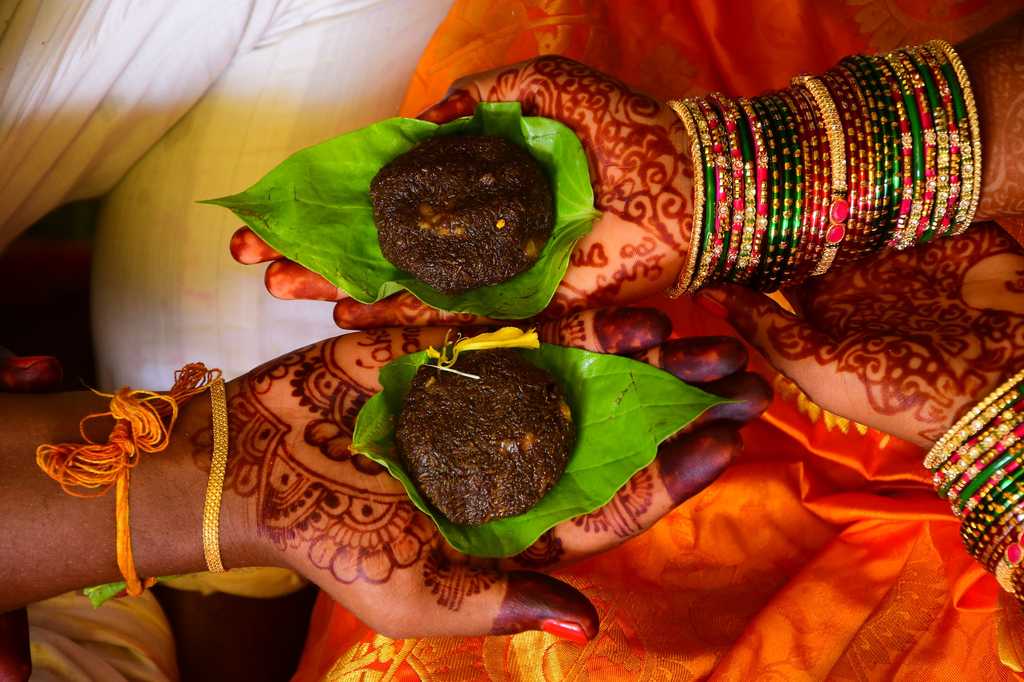
Jeelakarra Bellam This ritual involves the couple applying a paste made of cumin seeds and jaggery on each other’s heads, symbolizing their unity and inseparability.
-
Mangalsutra and Saptapadi:
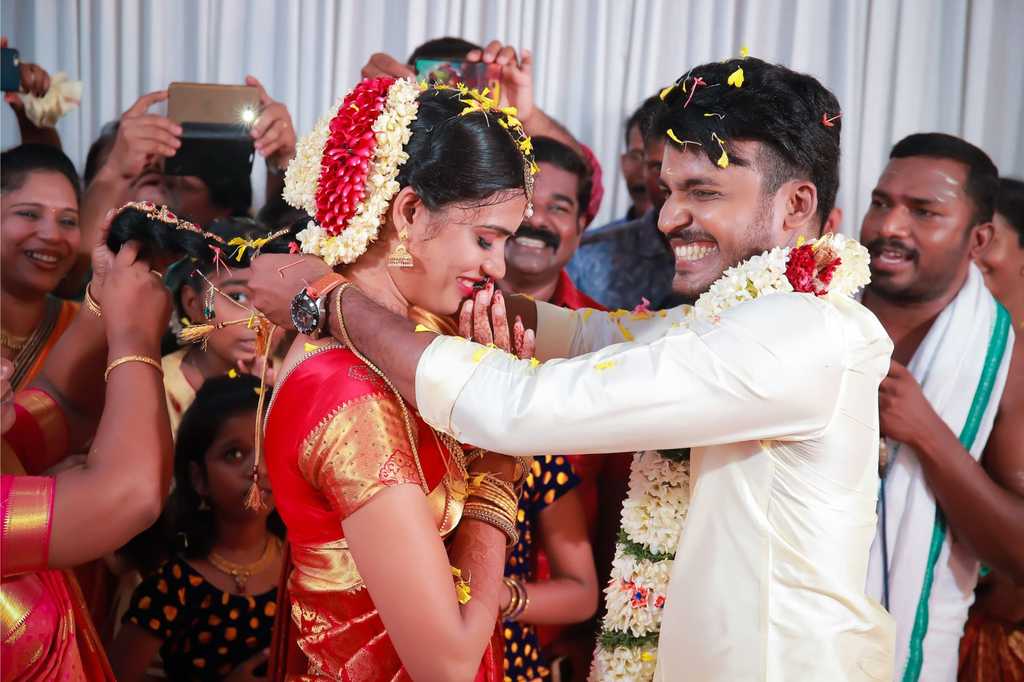
Mangalsutra and Saptapadi The groom ties the mangalsutra (sacred thread) around the bride’s neck, signifying their marital bond. The couple then takes seven steps together around the sacred fire, known as Saptapadi, while making seven vows to each other.
-
Kanyadaan and Sumangali Prarthana:
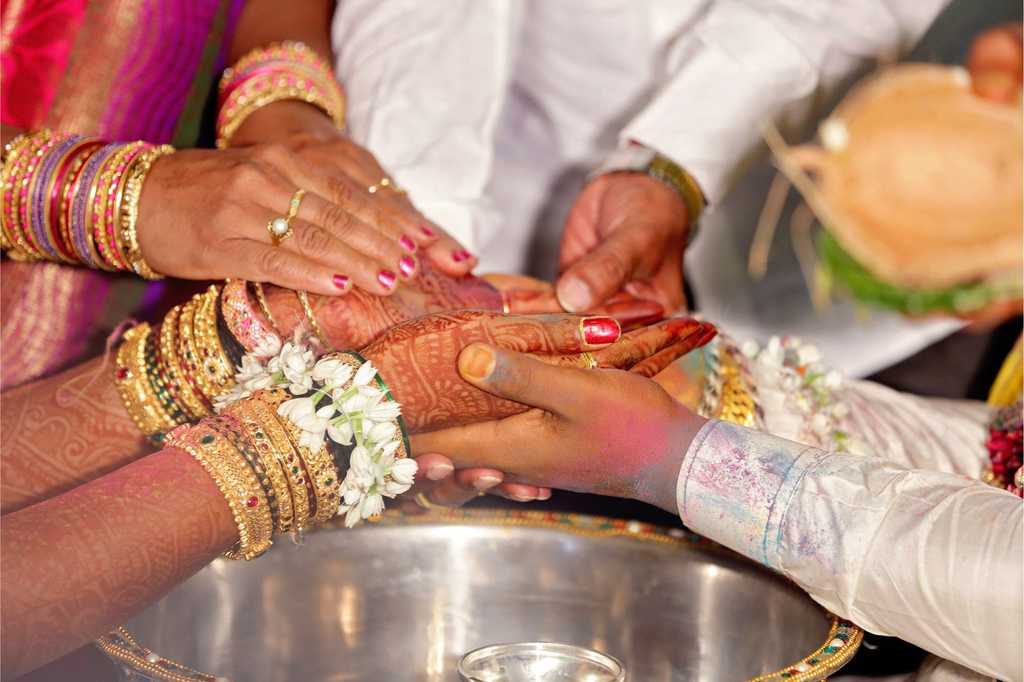
Kanyadaan and Sumangali Prarthana The bride’s father performs the Kanyadaan, where he gives away his daughter to the groom. The Sumangali Prarthana is performed by married women, seeking blessings for the bride’s future married life.
-
Post-wedding rituals:
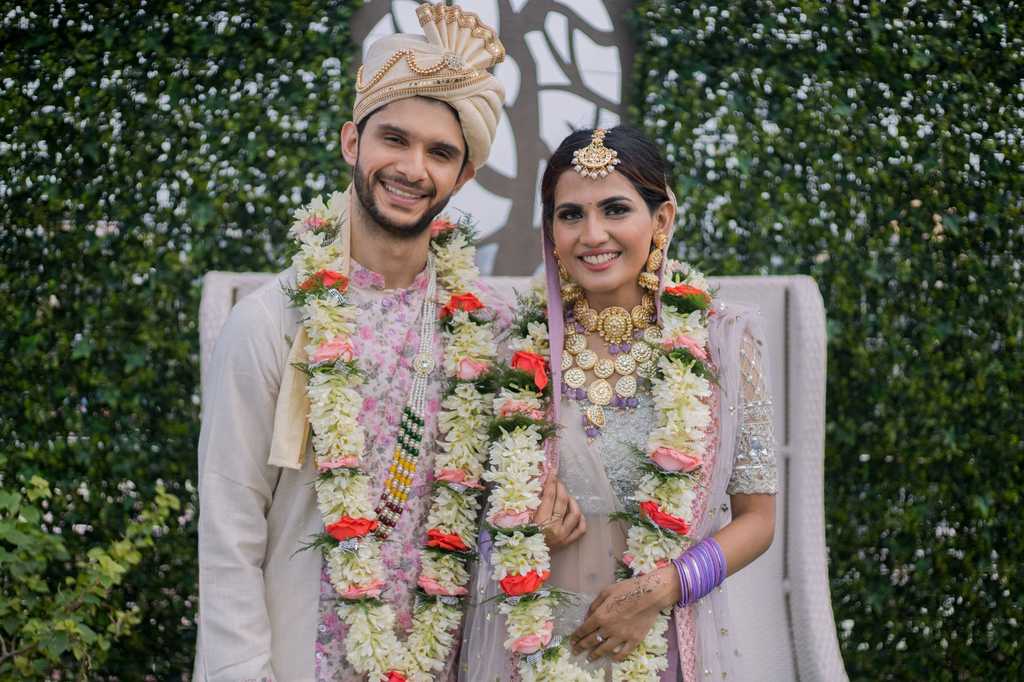
Post-wedding rituals After the wedding ceremony, the couple seeks blessings from the elders of both families. The bride is welcomed into the groom’s family, and various customs like Vidaai (farewell) and Grihapravesh (housewarming) take place.
-
Reception:

Reception A grand reception is usually organized after the wedding, where family and friends come together to celebrate the newly married couple. It includes music, dance, feasting, and exchanging gifts.
Telugu weddings are known for their emphasis on tradition, rituals, and family involvement. They are vibrant and joyous affairs, with a focus on creating lasting bonds between families and celebrating the union of the bride and groom.

